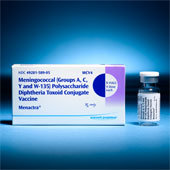
May 27th, 2011 by RamonaBatesMD in Health Tips
Tags: Dog Bites, Dog Safety, Emergency Medicine, Pediatrics, Plastic Surgery, Prevention, What To Do When A Dog Bites
No Comments »

Last year I didn’t write about dog bite prevention until the first week of June even though I know National Dog Bite Prevention Week is always the third full of week of May.
The numbers shared by the American Veterinary Medical Association (AVMA) haven’t changed: 4.7 million people are bitten by dogs each year in the US with 800,000 of them requiring medical attention.
 If you have read this blog for very long, you know I dearly love my dogs — deceased ones (Columbo, Ladybug (photo), and Girlfriend) and the living one, Rusty. Still, I have no illusions that dogs bite and given the right provocation, I think mine would though most of the time they are totally harmless and would just invite you in to rob me.
If you have read this blog for very long, you know I dearly love my dogs — deceased ones (Columbo, Ladybug (photo), and Girlfriend) and the living one, Rusty. Still, I have no illusions that dogs bite and given the right provocation, I think mine would though most of the time they are totally harmless and would just invite you in to rob me.
Sadly, children are by far the most common victims of dog bites, occurring most often in children 5-9 years of age. Senior citizens are the second most common dog bite victims.
Children are also more likely to be severely injured and represent half of the dog-bite victims requiring medical attention every year. Almost two thirds of injuries among children Read more »
*This blog post was originally published at Suture for a Living*
May 26th, 2011 by Elaine Schattner, M.D. in Health Tips, News, Opinion
Tags: Blogs, Communication, Ideas, Medical Blogs, New York Times, Reliable Health Information, Science, Social Media, Trust, Truth
No Comments »

Last week Aaron Sorkin wrote for The Atlantic a piece in which he details his daily news feed, in What I Read. He’s not into blogs:
When I read the Times or The Wall Street Journal, I know those reporters had to have cleared a very high bar to get the jobs they have. When I read a blog piece from “BobsThoughts.com,” Bob could be the most qualified guy in the world but I have no way of knowing that because all he had to do to get his job was set up a website–something my 10-year-old daughter has been doing for 3 years. When The Times or The Journal get it wrong they have a lot of people to answer to. When Bob gets it wrong there are no immediate consequences for Bob except his wrong information is in the water supply now so there are consequences for us.
PZ Meyers, whose tagline for Pharyngula at ScienceBlogs is a bit crass for my taste, but with whom I often agree, writes On What’s Wrong With the Media:
This is the problem, that people blithely assume that because it is in the NY Times or the WSJ that it must be right — I’d rather read BobsThoughts.com because there, at least, poor lonely Bob must rely on the quality of his arguments rather than the prestige of his name and affiliation to persuade. Read more »
*This blog post was originally published at Medical Lessons*
May 26th, 2011 by Shadowfax in Health Tips
Tags: Anonymous Blogging, Blogging, From An Expert, Guidelines, HIPAA, Patient Privacy, Physicians
1 Comment »

 There’s been quite a kerfuffle over the “Unprofessional” post Dr V wrote. A lot of people have been very shrill in denouncing physicians who write about their experiences using social media — blogs, twitter, facebook, etc — with particular emphasis on those who do not use their real names.
There’s been quite a kerfuffle over the “Unprofessional” post Dr V wrote. A lot of people have been very shrill in denouncing physicians who write about their experiences using social media — blogs, twitter, facebook, etc — with particular emphasis on those who do not use their real names.
So, while I won’t tell someone how they should blog/tweet, or try to impose my vision of professional standards on a community that clearly is still coming to consensus with public conversations by healthcare workers, I will offer you my personal guidelines and values that I use in determining what I am willing to put into the public domain. These are just my opinions; your mileage may vary.
As a general principle: patients give physicians and nurses access to intimate details of their lives and they have a reasonable and valid expectations that we will respect their privacy and dignity. When using social media, that does need to be maintained. How you do that requires careful attention and may be controversial regardless of your approach.
Don’t blog or tweet anything that you wouldn’t want you boss/hospital administration to read. Stress test yourself by informing your employer or CEO about your blog and invite them to read it. That will keep you honest! Read more »
*This blog post was originally published at Movin' Meat*
May 26th, 2011 by Paul Auerbach, M.D. in Health Tips
Tags: Bacterial Meningitis, Ciprofloxacin, Diagnosis, FDA, Menactra, Meningitis, Meningococcal Vaccine, Meningococcus, Treatment, Vaccine
No Comments »

 One of the most feared infectious diseases for outdoor travelers—particularly children and young adults—meningitis caused by the bacterium Neisseria meningitidis (meningococcus). The infection can appear in outbreaks, most commonly abroad, particularly in sub-Saharan Africa and China.
One of the most feared infectious diseases for outdoor travelers—particularly children and young adults—meningitis caused by the bacterium Neisseria meningitidis (meningococcus). The infection can appear in outbreaks, most commonly abroad, particularly in sub-Saharan Africa and China.
The infection is spread in the respiratory secretions of humans. The disease appears in many forms, the most common of which are meningitis, pneumonia, and disseminated bacterial infection. The typical presentation of meningitis is fever, headache, and a stiff neck. If the cause is meningococcus, the victim may develop a skin rash, which consists of red dots or bumps, or a flat, more patchy dark red discoloration.
If the dark red dots begin to enlarge and coalesce into large purplish bruise-like discolorations, this is a bad sign. In the worst cases, a victim can develop shock, respiratory failure, diffuse bleeding, and death. Approximately one in 10 victims of meningococcal meningitis dies. Read more »
This post, Do You Know How To Recognize Deadly Bacterial Meningitis?, was originally published on
Healthine.com by Paul Auerbach, M.D..
May 25th, 2011 by admin in Health Tips, Research
Tags: Azodyl, Coenzyme Q10, Digestive Enzymes, Do They Work?, Fish Oil, Glucosamine, Lysine, Milk Thistle, Multivitamins, Probiotics, SAM-e, Supplements, Veterinary Medicine
No Comments »

An Embarrassment of Riches?
Much has been written here about the dietary supplement business, a multibillion dollar industry with powerful political connections, and about the woeful inadequacy of regulation which allows widespread marketing of supplements without a solid basis in science or scientific evidence.
The veterinary supplement market is a pittance compared to the human market, but still a billion-dollar pittance that is growing rapidly. Unfortunately, the resources available for good quality research in veterinary healthcare are also a pittance, and it is not at all unusual for our pets to suffer, or even be euthanized, as a result of treatable diseases for want of money to pay for needed care. So $1 billion a year spent on nutritional supplements may not be such a good deal if these products don’t effectively prevent or treat disease. Read more »
*This blog post was originally published at Science-Based Medicine*
 If you have read this blog for very long, you know I dearly love my dogs — deceased ones (Columbo, Ladybug (photo), and Girlfriend) and the living one, Rusty. Still, I have no illusions that dogs bite and given the right provocation, I think mine would though most of the time they are totally harmless and would just invite you in to rob me.
If you have read this blog for very long, you know I dearly love my dogs — deceased ones (Columbo, Ladybug (photo), and Girlfriend) and the living one, Rusty. Still, I have no illusions that dogs bite and given the right provocation, I think mine would though most of the time they are totally harmless and would just invite you in to rob me.





 There’s been quite a kerfuffle over the “
There’s been quite a kerfuffle over the “
 One of the most feared infectious diseases for outdoor travelers—particularly children and young adults—meningitis caused by the bacterium Neisseria meningitidis (meningococcus). The infection can appear in outbreaks, most commonly abroad, particularly in sub-Saharan Africa and China.
One of the most feared infectious diseases for outdoor travelers—particularly children and young adults—meningitis caused by the bacterium Neisseria meningitidis (meningococcus). The infection can appear in outbreaks, most commonly abroad, particularly in sub-Saharan Africa and China.








